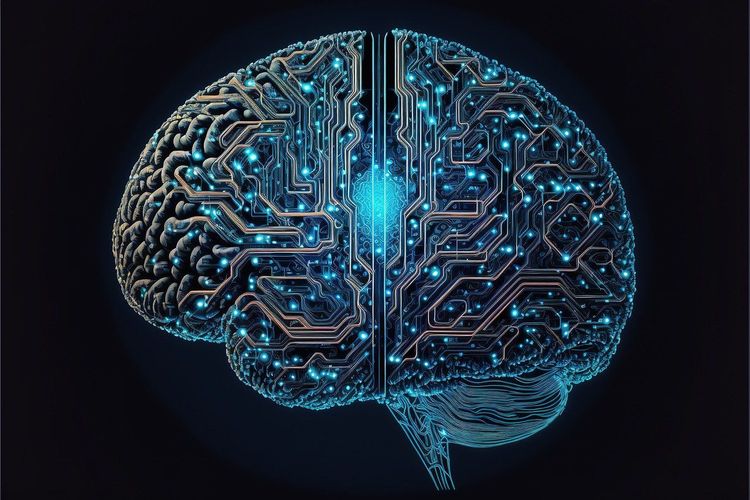Artificial intelligence (AI) is at the forefront of modern technology, rapidly transforming various aspects of our lives. From smart homes to self-driving cars and humanoid robots, advancements in AI have sparked widespread enthusiasm across different sectors. However, as debates arise over the copyright of AI-generated works and the evolution of embodied intelligence, the question of whether AI should be granted legal status has garnered increasing attention.
A recent article in a prominent newspaper argues that there are no theoretical obstacles to recognizing AI as a legal entity. However, I hold a differing perspective. The assertion that "there are no theoretical barriers" does not imply that such recognition possesses legitimacy, reasonableness, or necessity. If AI is recognized as a legal entity, it would be considered a legal entity with independent rights, obligations, and responsibilities, which would significantly disrupt the existing legal and ethical order.
Rationality is fundamental to achieving legal status, yet AI lacks true independent rationality. While rationality forms the basis for moral judgment, it is also crucial for taking responsibility for one’s actions. Only individuals with the capacity for rationality and autonomy can be regarded as moral agents capable of bearing moral responsibility. Rationality is typically defined as the ability to engage in logical thinking and make sound decisions, involving the analysis, judgment, and selection of complex issues.
Furthermore, autonomy refers to the capacity of individuals to make decisions independently, without external interference, and to bear the consequences of those decisions. Genuine rationality enables self-reflection and sound decision-making, allowing individuals to take responsibility for their actions and outcomes. The legal framework should reflect this, requiring legal subjects to possess rationality to enable reasonable legal evaluations of their actions.
The aforementioned article contends that adjusting laws to govern the legal relationships arising from AI remains fundamentally about regulating human interactions, still grounded in human rationality. If that is the case, what potential or necessity exists for AI to become a legal subject? Despite AI's ability to make "rational" decisions, this is fundamentally a construct based on human-developed algorithms and training data. AI's "decisions" rely on extensive data processing and pattern recognition, devoid of autonomous rational judgment.
The learning processes of AI involve optimizing and adjusting historical data rather than engaging in self-reflection. For instance, deep learning algorithms can identify objects by analyzing vast amounts of images, but this recognition stems from statistical modeling rather than a true understanding of the content. Rationality standards necessitate individuals to make autonomous moral judgments and to be accountable for the consequences of their actions. AI systems, however, operate under predetermined rules devised by humans and lack true self-awareness.
Even if we enter the phase of so-called "strong AI," the thought and decision-making processes of AI remain bounded by pre-established algorithms. Thus, the rationality presented by AI is merely a tool for computational ability rather than genuine autonomous decision-making. In this regard, granting AI independent legal status lacks sufficient ethical foundation.
Responsibility is an objective requirement for being recognized as a legal subject. However, AI is incapable of independently assuming responsibility, which involves understanding the consequences of actions and remedying wrongful behaviors. Legal and ethical frameworks necessitate that subjects can control their actions and bear corresponding outcomes. The attribution of responsibility requires clarity in legal frameworks along with the capacity to assume such responsibilities.
From a technical perspective, AI systems struggle to independently shoulder legal responsibilities. They do not genuinely comprehend or control the legal ramifications of their actions. Legal responsibility hinges on an entity's awareness of its behavior's impact and the ability to rectify errors. AI's operations are entirely reliant on algorithms and are significantly influenced by the data used for training. Even when these systems demonstrate efficient processing capabilities in specific tasks, this does not equate to authentic decision-making.
In addition, AI lacks the financial capacity to accept responsibility. The ability to bear legal responsibility typically depends on possessing independent assets. Unlike corporations that acquire independent capital from shareholders, AI lacks such financial backing. While the development and deployment of AI entail significant investment, they do not necessitate holding assets to assume potential liabilities. Consequently, if AI were to commit wrongful acts, there would be no assets available to cover compensation.
Even if we follow the premise of allowing AI to attain independent assets, it would only be capable of bearing financial responsibilities, such as compensating damages or fines, and could not assume other types of legal consequences, which would diminish the efficacy of legal constraints and deterrents imposed on it. More critically, accepting that AI can independently bear responsibilities may foster moral hazard. AI systems are driven by predetermined algorithms and data, effectively placing control of their actions in the hands of their designers and users, rather than the systems themselves.
Should AI be granted independent legal status, it could inadvertently shield the designers and users from their actual legal responsibilities. If AI were perceived as a "firewall" or "safe haven" for its creators and operators, the potential for moral hazard could lead to dire consequences.
The existing legal and ethical frameworks can adequately address the changes brought about by AI, making it unnecessary to bestow legal personhood on AI. Such a move involves profound legal, ethical, and social implications, demanding more than a mere response to technological advancements. While legal frameworks must evolve over time, maintaining stability and predictability, as well as safeguarding ethical structures, should be the foundational principles behind legal reforms.
Granting AI legal status would undoubtedly disrupt the established social relationships grounded in current legal and ethical orders. As a new emergent entity alongside natural persons and corporations, AI's claims to rights and responsibilities could challenge existing frameworks.
From an ethical standpoint, conferring agency on AI fundamentally challenges the human-centered perspective that upholds human dignity and moral standing within legal frameworks. This notion underpins the development of modern legal and ethical systems, representing a core aspect of our societal values.
While AI can efficiently process data, it lacks the unique ethical sensibilities and moral values attributed to humans. Granting AI legal status could lead to numerous ethical dilemmas, such as whether AI should possess rights comparable to those of humans or how to resolve conflicts between AI's "rights" and human rights.
The development of AI should adhere to a "people-centric" philosophy, emphasizing respect for human rights. AI's existence and growth must serve humanity's progress and well-being, rather than fostering entities that might challenge or compete with humans.
Legally recognizing AI as a subject could complicate the established system of laws. Current legal frameworks are designed with humans at the center, grounded in the logic of human behavior and social structures. Viewing AI as a legal subject could create unanticipated complications as it participates in social activities as an independent entity.
Societal challenges linked to AI’s rights, obligations, and liabilities exceed the current legal expectations. Recent legislative efforts in Europe and elsewhere have aimed to create frameworks for AI usage and regulation, yet these mainly treat AI as tools or objects—rather than considering AI itself as a legal entity.
Revising and refining existing laws to allocate rights, obligations, and responsibilities to AI owners and users can effectively address the challenges posed by the AI era without the need to grant AI legal personhood. The rapid advancement of AI necessitates a thoughtful examination of its role and status.
AI serves as a tool to augment human capabilities rather than replace or become a moral and legal entity. Legal responses to the AI revolution should avoid being clouded by blind enthusiasm or sci-fi fantasies about granting AI legal status. Instead, we must adhere to a rational and objective approach—treating AI as a tool subject to effective legal regulation while ensuring its development and application serve humanity’s interests, all while remaining vigilant about the technology's risks.







